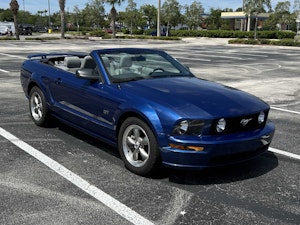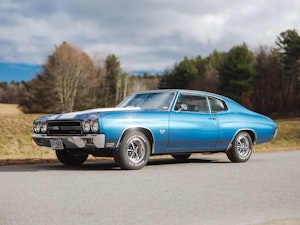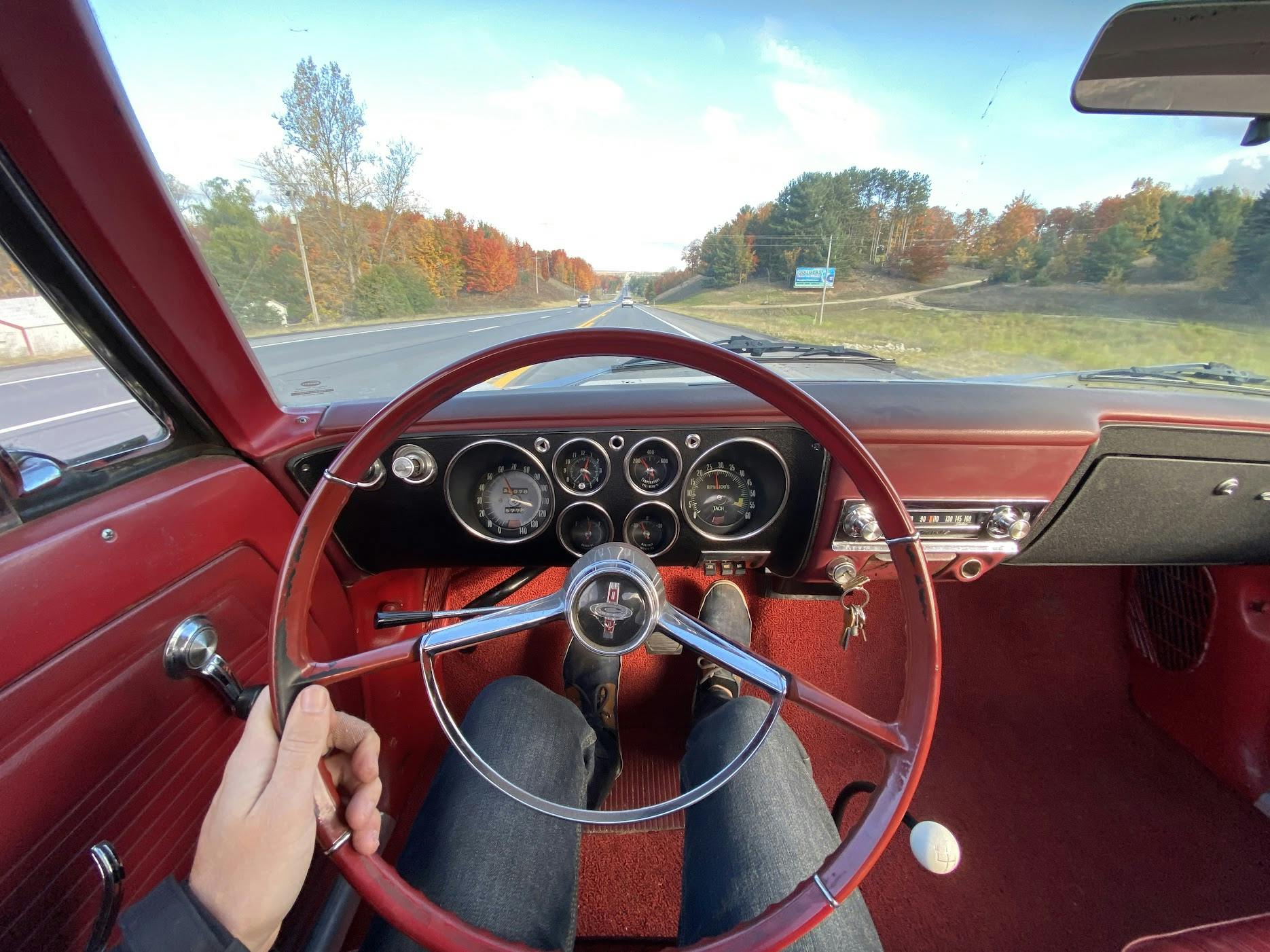Media | Articles
Yes, It’s Possible to Change Laws That Keep You from Driving Your Classic
We love driving our vintage cars, but sometimes local law says we can’t, shouldn’t, or are not welcome to do so. It’s frustrating, and the complexity of traffic law makes the situation confusing, even if those layers of legalese were accumulated over a century of incremental change targeted at keeping our roads orderly and our drivers safe.
The laws that govern driving are something that we agree to follow when we apply for and are granted our driving license. So what do we do when we want those laws changed?
The process is not simple or quick, but it is possible. Just a few weeks ago, a committed group of car enthusiasts won a long-awaited victory: The state of Michigan announced that it would alter the driving code as it pertained to the usage of vehicles with authentic or historic registrations (to qualify, a vehicle has to be 26 years or older).
The vehicle code of Michigan was written to restrict the driving of vehicles with these types of registrations to “club activities, exhibitions, tours, parades, and similar uses, including mechanical testing.” The law barred their use for regular transportation but granted a lower annual registration fee. A handful of drivers were issued tickets while at Detroit’s beloved Woodward Dream Cruise because the event did not fall under any of the approved scenarios yet drivers took their vintage rides out regardless of registration. John Russell, along with other members of the Twin Bay British Car Club, thought the situation was absurd, so they began the process of removing the restrictions.
Most states help people like you or I by giving us a roadmap to enact the change we wish to see. For example, Michigan.gov has a four-page explainer of the exact steps needed—in order, no less.
Marketplace
Buy and sell classics with confidence

If only it were that simple. I reached out to a few of the people who were behind the recent change in Michigan, and they provided some valuable perspective. “I guess the word I would look for is perseverance,” said Dr. Fred Stoye, who worked closely with John Russell and other members of the Twin Bay British Car Club to march the path laid by the state. “We saw the need for positive change, followed all the legal steps, forged alliances in the legislature, and presented a plan that worked and was voted into law.”
The process was not quick. There were multiple dead ends along the way that put pauses on any progress and sometimes kicked them back to square one. In the end, the group persevered for ten years before they achieved the big victory. One of the tougher steps in the process was getting a lawmaker to pick up their cause. They struggled to find a sponsor who was willing to introduce the bill and to continue advocating for it as the bill stepped through committee review, which can take months to years, depending on a multitude of factors.


Even with a sponsor, and after the bill passed the Michigan House of Representatives, Russell and his compatriots had no time to relax. All the work up to that point could be done from afar, but when the bill entered the Michigan Senate, they were asked to testify at a hearing to explain why the relaxation of driving restrictions was worthwhile. Stoye, Russell, and other team members went to Lansing with a measured approach: “We expressed the need to drive our classic cars to keep them healthy and how there would be no adverse damage to our roads.” Their argument boiled down to the fact the current law was not particularly helping anything—so why did it exist?
Their argument might not apply to every change you or I would like to see regarding restrictions to the use of vintage cars, but the members of the Twin Bay British Car Club set a great example for automotive enthusiasts. What it really takes to change a law is the right group of people, motivated in the right way, who are willing to stick out the process.
If there is a restriction or driving law you think is outdated, superfluous, or otherwise unhelpful to the vintage car hobby: The power is in your hands. People just like you have succeeded in making change. Now it’s your turn.
***
Check out the Hagerty Media homepage so you don’t miss a single story, or better yet, bookmark it. To get our best stories delivered right to your inbox, subscribe to our newsletters.















Similar thing in Texas occurred a few years ago. Some congressman decided the fiberglass dune buggies should be illegal. So they were, essentially over night.
It took several years, lots of donations and loads of perseverance! We now have a very specific path to making dune buggies street legal again.
Part of that came about due to people trying to register off road UTVs/go-carts as ‘buggies’.
I Iive bc Canada and after inspection we can apply for collector plates at a cost of about 250 per year. No to work, no advertising but can pretty well do anything else.If I have 3 or more cars classified as classic or modified 25 years old I can insure one and move the plates from car to car for one at atime usage.This is a good opportunity as we have government only for basic coverage at a cost of about 1200 per year.
NC has/had a flat-rate valuation on any car/truck at $1500-$2000 minimum at one point…
In all fairness, insurer’s don’t help much
In WI you can get a “collector” plate for any car that is over 20 years old. Have to show you also have a car with regular plates. Only restrictions are you cannot drive it in January (who would want to if it’s truly a “collector” car). No other restrictions on miles, reason for driving, etc. Collector plate cars have to have a stock body, but other mods are OK! This was changed by dedicated “car guys” from the previous requirement that the car had to be “stock,” which no older car can meet. If you modify the body, you can get a “hobbiest” plate, however, this may require inspection by the State Patrol to verify it has the required safety equipment. You pay a one-time registration fee (about 3X the normal plate fee), but it is valid as long as you own that car. A good comprimise I think,
They’re trying to do it here in California . A recent survey was sent out to a selected year of vehicles 1977 & older. Questions asked : where we park our cars inside or out? How much fuel is in the tank? How often we drive them? It’s all about our carbon print! Fuel evaporation into atmosphere, Words out from reliable sources they are planning to restrict days of driving these vehicles in certain areas. Some collectors are taking it lightly supporting the survey, thinking it’s to change Years of Smog testing. We no longer have organizations to fight these changes as in the past. Part of our club dues went to one . California Historical Vehicle Association CHVA it no longer exists since the legislature representative we had John McLaughlin passing.
The American car culture is often discounted, we simply need look at poor EV sales. Woo to anyone who steps on the 3rd rail of messing with it.
guess florida hasn’t gone full retard. cars over 30 years old can get antique plates, but regarless of what plate you have, the registration does go down a bit. But as far as being restricted in how the car is used? don’t think that’s a thing in florida. More like hagerty insurance – can’t drive the car as a daily /excessive miles, which isn’t a problem for me personally as i have multiple rides.
what this does illustrate is the need for reduced government, term limits/lifetime limits etc. and probably need to do like the ancient greeks did – only get 1 year and your finances are audited before and after your service – anything fishy and your head is on the block.
too many sociopaths and control freaks seek out governmental positions so that they may be a-holes to the rest of us. However, times are a changing and behaviors best be modified unless one’s value of their life is minimal.
Illinois has a middle-ground option, “expanded antique” plates. For half the regular registration fee, one can drive their vehicle for 9 months of the year as a normal car. In December thru February, they are treated as an “antiqued”-licensed vehicle, only drivable for shows, servicing, and such. I have found this plate-type to be a great option. Perhaps other states can be persuaded to adopt something similar.